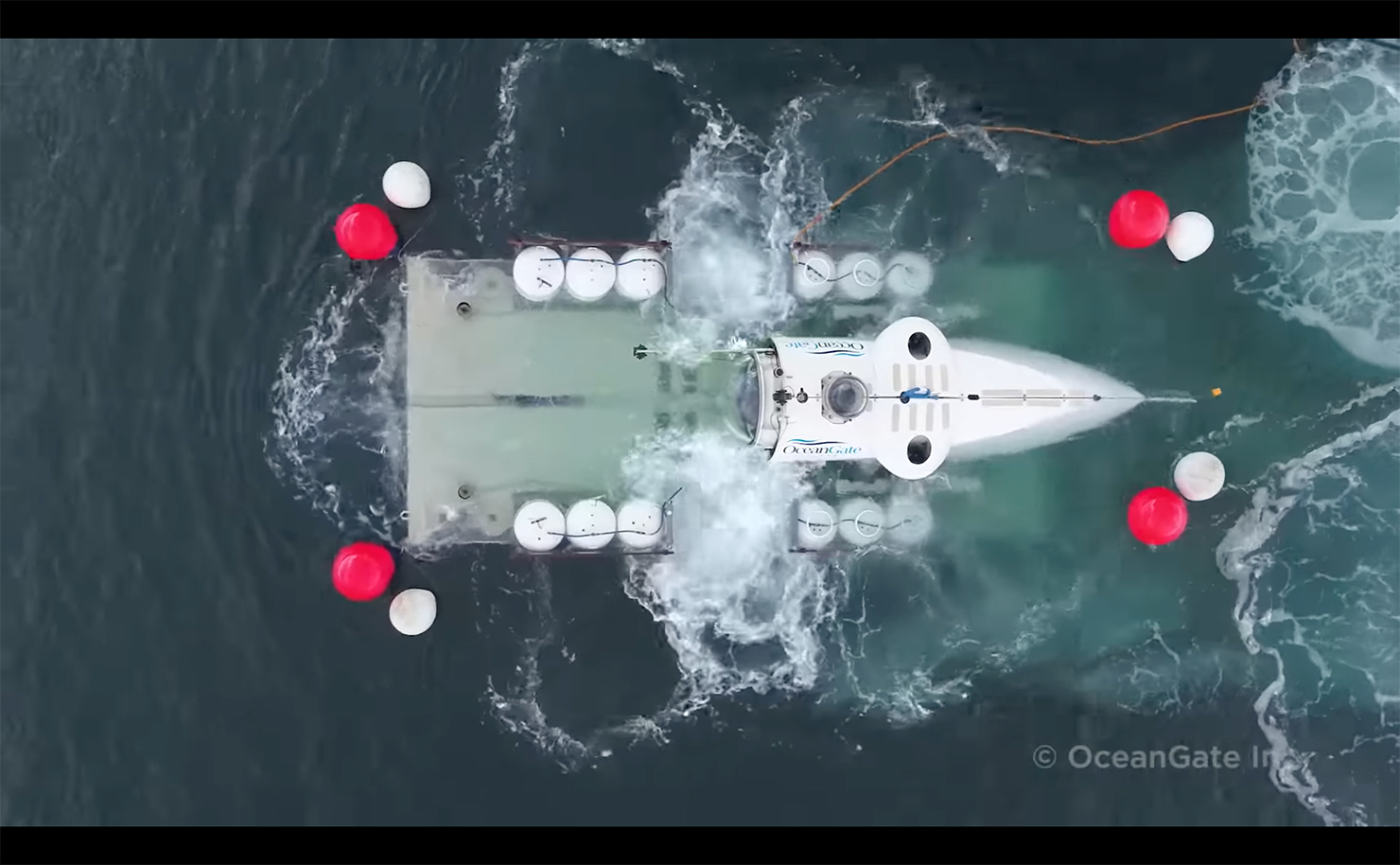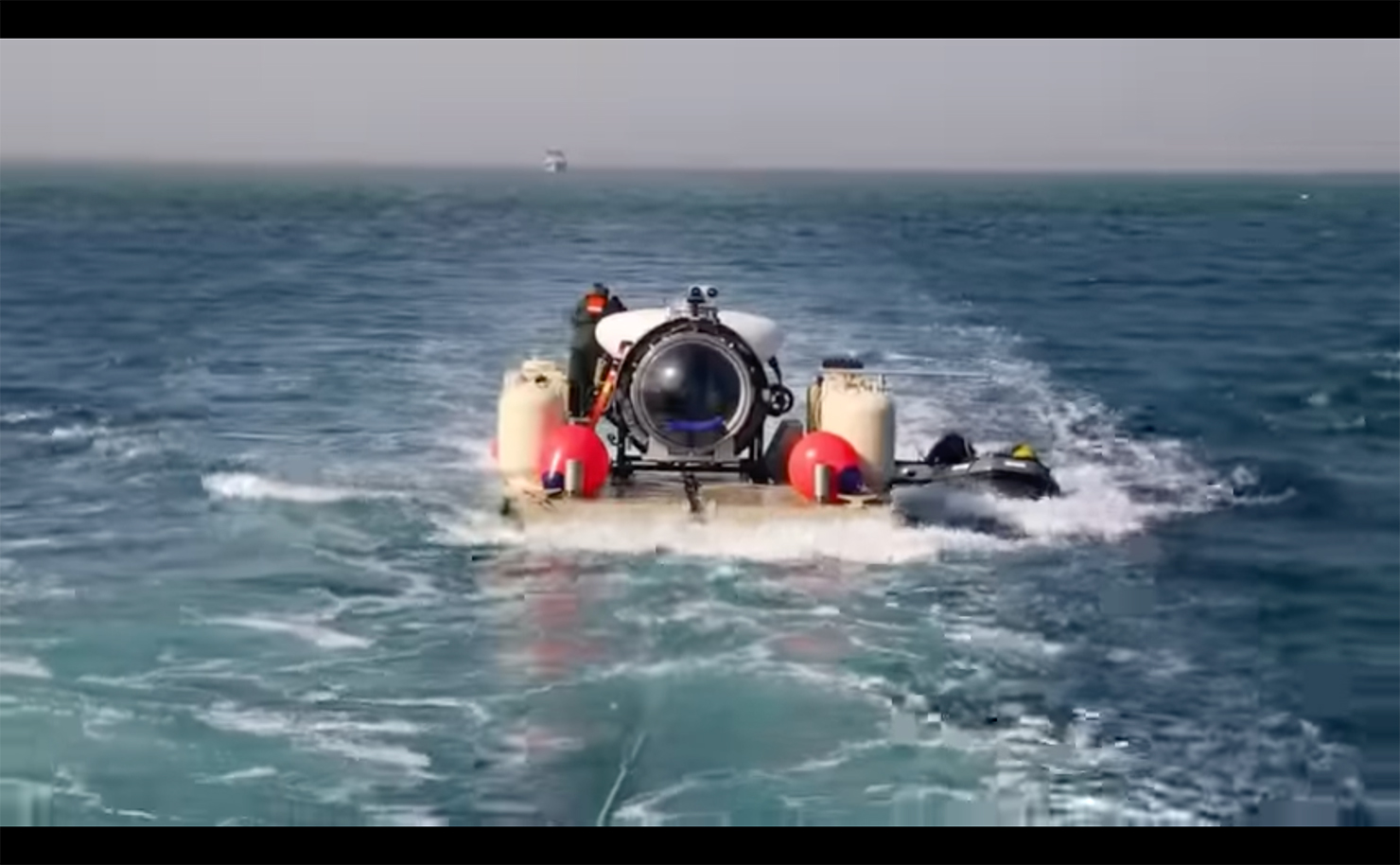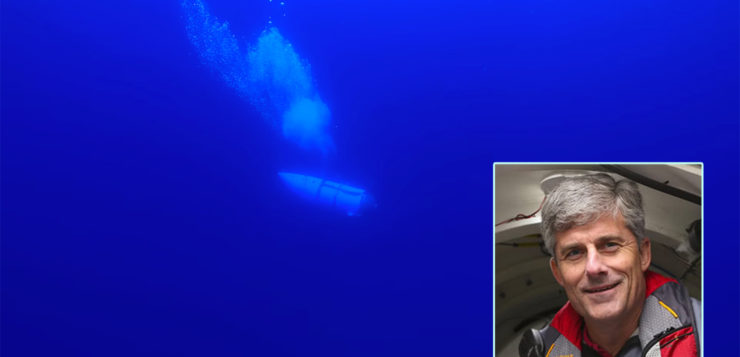One of the unfortunate things about arrogance as a human trait is that it’s frequently accompanied by stupidity, the two bedfellows apparently irresistible to one other.
Stockton Rush, the CEO of OceanGate, seemingly had both in spades, hence why his body – and those of four of his high-paying customers – are lying at the bottom of the Atlantic Ocean, about 500 metres from the wreck of the Titanic.
It’s impossible to have missed the Titan submersible story this past week, unless you turned off news altogether. Even then, you probably still heard about it. Equally, the stories of Rush dismissing warnings about the safety of his craft are now everywhere, including this one which reveals that at one point, he threatened legal action to shut up one of his detractors.
And there was this as well, from 60 Minutes Australia: Why rescuing a deep sea sub in the depths of the ocean is nearly impossible. The story doesn’t actually mention the Titan. It doesn’t even deal with the ‘impossibility’ of rescuing a deep sea sub. It’s just a misleadingly re-badged story from a few years ago about director James Cameron exploring the Titanic wreck. You know, because expressing derision at the stupid and avoidable deaths of five people, like so many did on social media, is “callous and cruel”, but shamelessly exploiting those deaths for clicks and commercial gain is, well, it’s what passes as modern media these days.

At the same time, media reporting has also been tempered with a distinct ‘there but for the grace of God go other explorers’, as though Rush, while tragically flawed, was the sort of adventurer who bravely pushed boundaries, and drove innovation for the benefit of us all.
Rush certainly pushed boundaries, that’s undeniable, and evidenced by his mostly liquified corpse now drifting around the deep currents of the Atlantic. But if by ‘drove innovation’ we actually mean ‘took innocent people with him in the most staggeringly idiotic way possible’, well then he ticks that box as well.
So how did it all happen, and how should we feel about the death of not just Rush, but of his four obscenely rich customers? And what about the media’s remonstration of people who did express disgust at the whole circus? Well, first to the facts, because they’re always helpful in emotional situations where media like to wax lyrical.
Stockton Rush wasn’t the “last of the American…dreamers”. He was a grifter, and he was able to operate his sub-standard (no pun intended), highly risky venture with bugger-all accountability because he did it in international waters, where the laws are, again, no pun intended, quite a bit more murky. So, note to self: If a rich American ‘dreamer’ offers you a spot on anything – a boat, a plane, a bicycle – which he then intends to operate in international waters, it’s probably because he’s trying to avoid regulations that keep you safe and, more to the point, cost him money.
Secondly, Stockton Rush wasn’t an innovator. He was someone who made a career out of cutting corners, as evidenced by one of his arguments against adopting rigorous safety regulations: They were “anathema to rapid innovation”. In other words, time is money, and in this case, Rush’s money, which he was not interested in parting with, even if people might die if he didn’t.
Thirdly, Stockton Rush wasn’t a “maverick”. He was a dangerous idiot. His primary argument against his submersible being properly certified to meet design safety standards – and this is by far the most clear and present indication of just how dangerous an idiot Rush actually was – is that the majority of sub-sea accidents are caused by “operator error”.

Rush is, in fact, correct – the figure appears to be somewhere between 60 and 90 per cent of fatalities. But does anyone want to hazard a guess as to why the ‘operator error’ figure is so high, and the failure of equipment so rare?
Because of the very rigorous technical and safety standards that sub-sea vessels are required to meet before they operate.
Let’s just let that sink in (again… no pun intended) for a bit: Rush relied on the fact that the safety standards in his industry are high in order to argue that’s why he didn’t need to observe high safety standards. It’s hard to sum up the level of arrogance and stupidity that goes into thinking like that. It’s as if the Dunning-Kruger affect and the Darwin Awards met at an idiot’s convention, fell in love, had a baby, and they called it Donald Trump.
Speaking of collective narcissism, there’s also the issue of the reaction by some to the extraordinary level of interest shown by media. My personal view is that the disgust people feel at so much resources and attention being thrown at the Titan is not only justifiable, but encouraging. Because in case you missed it – and most everybody did – just a few days before Rush and his ‘explorers’ set off for the Titanic, hundreds of refugees from Africa drowned in the Mediterranean on their way to claiming asylum in Europe.
You can guess the level of response from authorities, let alone the media interest in the deaths, most of the coverage of which centred around… the lack of coverage. There was, as you might expect, the odd piece of public hand-wringing in the media about the dilemma. This piece from Emma Brockes of the Guardian UK tying herself in knots is probably emblematic of the broader problem.
“Online, meanwhile, people complain that… it is wrong to give this story any coverage at all if you aren’t covering bigger accidents in the same detail. It seems to me that it should be possible to hold two thoughts simultaneously in one’s head: that it’s reprehensible a ship carrying hundreds of migrants in the Mediterranean sank last week without being met with anything like the response rushing to the north Atlantic. And also that this is just one of those stories; a set of circumstances so freakishly horrifying that it is impossible to tear oneself away,” she wrote.
Ah, no Emma. Firstly, people aren’t complaining that the Titan story received coverage, they’re complaining that it received blanket coverage, while the deaths of countless – literally countless – asylum seekers less than a week earlier received comparatively almost none.
This is a not a difficult or even debateable point: the deaths of five rich people is not as important as the deaths of 300 or so asylum seekers, regardless of the circumstances. Period. The fact that anyone in media thinks it is, or even that there’s some room for debate here explains why so many believe legacy media is well passed its ‘use by’ date.
The story of the Titan, how it came to sink, and then how it’s been reported and lionised in the mainstream press since is an almost perfect metaphor for what’s wrong with western society, and in particular the media’s role in that decline.
It is, put simply, a story about our race to the bottom. Definitely no pun intended.
Donate To New Matilda
New Matilda is a small, independent media outlet. We survive through reader contributions, and never losing a lawsuit. If you got something from this article, giving something back helps us to continue speaking truth to power. Every little bit counts.




